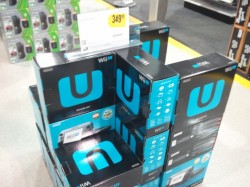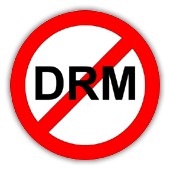As part of a new project I’m working on for our Australian readers, I’ve been testing out the various US based video streaming services. Man, you guys are really really spoiled in terms of content and price. Take Netflix for example – if it had been launched here first in Australia, the price would never have been $7.99 per month. More like $79 per month, probably with less content and more restrictions as well. And it’s not just content and price, it’s also quality. To put it into perspective, Netflix Super HD’s maximum quality is probably better than anything we see in broadcast here in Australia, and that includes the $100+ per month HD cable I’m paying for.
I just hope I have enough bandwidth. I thought 300GB per month would be more than enough when I switched a month ago, but having used 15GB per day for 3 out of the last 5 days, I’m not so sure now.
Despite the Netflix (and Hulu Plus) bingeing, I did manage to get some work done (plus the bingeing was part of work, um, yes), so here’s the WNR.

Microsoft, maybe. But Google, the BBC and Netflix as bad guys? Most people won’t think that. But when it comes to adding DRM to HTML5, all of them are indeed on the wrong side of the issue.
The reason these companies all want to ditch Flash or even Microsoft’s own Silverlight is that with HTML5 and native support by modern browsers, it makes writing video applications for PCs (and tablets and smartphones) that much easier. Instead of maintaining a dozen different apps for different platforms, you can build a HTML5 based one and customize that for each platform.
But in order for the switch to HTML5 to happen, DRM must happen too. To be fair, the requirement for DRM doesn’t come from these tech companies, but from the media companies that supply them with content. So once again, the story becomes “Hollywood wants DRM”, which isn’t really isn’t news is it?
Still, adding DRM to HTML5, the first HTML standard to have it if Netflix and co get their wish, is bad news. Not only does it mean an expanded proliferation of DRM, it also endangers the free nature of the web itself.
But since everyone loves Netflix, and hates Silverlight and Flash, it’s gonna be hard to get people worked up about WWW DRM. This petition is probably the closest we’ll get to an Internet protest.
I don’t really get it though. Netflix’s $7.99 per month makes pirating anything that’s already on Netflix quite pointless. And releasers usually takes the paths of least resistance, which for movies would be via DVD/Blu-ray rips, and HDTV recordings for TV shows. The only time people will bother ripping a Netflix stream would be for exclusive shows like House of Cards (and only when another source isn’t available). But then again, for $7.99 per month, the only people who end up pirating would be those that you really can’t squeeze any money out of, so where’s the loss in profit?
——
If a government mandated filtering solution isn’t going to happen, and I hope it won’t, then the next best thing for Big Content may be a commercial solution. Up steps McAfee, as a new patent application filed by the company aims to add an anti-piracy filter to the company’s existing SiteAdvisor service.
SiteAdvisor is right now mainly used to blocks access to search engine result links for malicious or adult content, but this new patent seeks to expand the tool’s functionality to include copyright infringing content. So even if Google doesn’t filter out links to sites like The Pirate Bay, SiteAdvisor will step in and do it for them, although the system administrator will have to option to still allow visits to these sites (after the user is forced to read a warning message).
And if the companies behind the major security software tools can all be convinced to implement something like this, patent permitting, it would be like Christmas come early for the likes of the MPAA and RIAA. It won’t stop what I would like to call “persistent pirates” (they would have turned off SiteAdvisor or the equivalent feature in their security software from day one I suspect), but for the “casual pirates” that Hollywood and the music industry insists are prevalent, those that are unaware of their “seriousness” of their activities or lack the technical know-how to bypass these kind of filters, it might just be enough.
But I think most pirates know exactly what they’re doing, and why. Just like Australians who download Game of Thrones know the exact rationale behind their actions. Which is why it was fairly undiplomatic for US ambassador to Australia Jeffery Bleich to post a long-ish rant on Facebook calling Aussies that download GoT no good thieves, making Ambassador Jeffery just as popular as King Joffery in the process.
Once again the tired, and plainly wrong, analogy of theft was used, admittedly a very clumsy one involving stealing a book from your neighbour’s home that I’ve not seen before. Apparently, downloading a *copy* of a Game of Thrones episode is just the same as breaking in to your neighbour’s home and stealing a book. This analogy would only be true if Australians were actually going into other people’s homes and stealing hard-drives full of pirated GoT episodes, which ironically would actually make people think twice about piracy for fear of an unwanted home invasion. Or if Aussies broke into HBO headquarters and stole the original and only copy of GoT episodes.
The correct analogy of course is one that involves your neighbour taking the time and effort to photocopy all of his books and then leaving copies on the street for anyone to take. By taking a copy, you’ve committed copyright infringement. If the right (or wrong) people took copies, it may lead to lost sales and hurt the rights owners. It may even hurt them so much as to bankrupt them. But it’s not exactly home invasion and burglary, is it?
And what if one of the people who picked up a photocopied copy, a person that never intended to buy the book in the first place, love it so much that he went to the bookstore immediately and purchased a copy? Doesn’t this count as a gained sale? Hasn’t the publishers, only in this one isolated incident to be fair, benefited from piracy?
As for the rationale behind taking and not buying, what if the bookstore was located really far away, like in another country? Or that for no particularly good reason, you had to wait months in order to buy the book locally compared to other countries, and that when it does arrive, it’s only available in an expensive, leather-bound, big print edition that weighs a ton, instead of an edition that you might actually want? That photocopied copy might then start to look like the much better deal, even without considering the pricing differences.
But no, it’s much simpler to just trot out the tired out analogies about stealing, shoplifting, and burglary apparently, and the equally tired and frankly dishonest lines about job losses and billions being lost every year.
——
The Pirate Bay has moved home again this week. That’s twice (or three times, if you count the temporary move back to the .se domain) in two weeks. This time it’s Iceland that becomes The Pirate Bay’s new port, with the new .is domain name. Unlike the Greenland domain name authority’s self-censorship of The Pirate Bay, the Iceland equivalent says that a court would have to decide on the fate of the new .is domain name before they would be willing to take any action. And quite rightly so, because it’s not the place for a domain authority to be judge, jury and executioner.
![]()
I said last week that I wanted to wait another week to comment on the March NPD results, to see if more hardware numbers roll in. They haven’t, unfortunately. So analysis turns to a game of educated guessing. Thanks a lot, NPD!
But if I had to guess, I’d have to say that the Wii U probably didn’t sell very well in March. If you asked me to tell you why the Wii U is struggling, then I’d probably have to say that it was down to several factors.

Wii U sales remain sluggish because it isn’t a huge improvement on the 360/PS3, nor is it cheaper or a better media device
One, the Wii U’s hardware, while an improvement on the Wii, is barely an improvement on the more than half-a-decade old PS3 and Xbox 360. If Nintendo wanted to go after the hardcore gamers, the Wii U isn’t going to do it.
Two, casual gaming has moved on from the days of the Wii. Now, it’s all smartphones and tablets and really really cheap games. The Wii U has a tablet, but can it really do things, in a standalone fashion, that the iPad cannot? Plus, Wii U games are still expensive.
Three, the cost. With the PS3 and Xbox 360 getting to the end of their release cycles, the Wii U is just too expensive by comparison. It’s just not good value, as it doesn’t play Blu-ray like the PS3, and its media streaming capabilities aren’t better than the Xbox 360’s. The lack of game titles surely can’t help, even with the presence of first-party exclusives.
So while more first-party games will help the Wii U, but by holiday 2013, the much more impressive PS4 and Xbox 720 will be out and I suspect the the Wii U will look even more outdated by then. Which is a shame, because had the Wii U been here just a year earlier, it might have been a completely different story.
Speaking of stories, I must get back to mine on Netflix. So many things to watch, so little time. See you next week.



